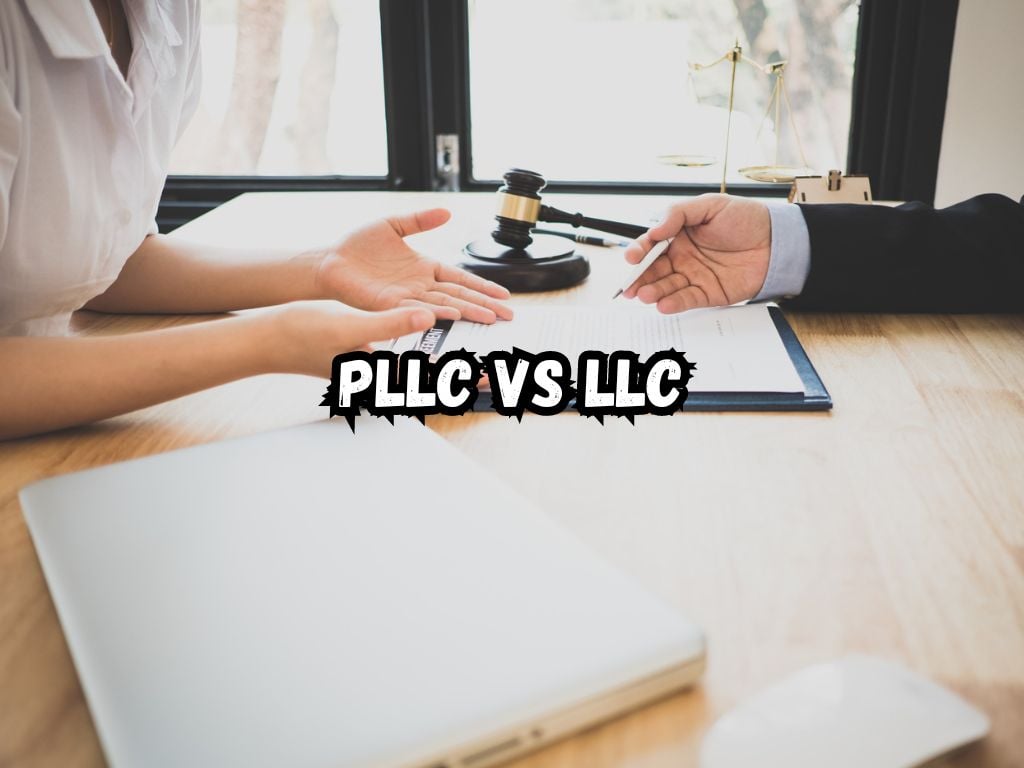Choosing the right business structure is a decisive step for entrepreneurs. It shapes the foundation of your enterprise, affecting everything from daily operations to tax obligations.
Among the various options, Limited Liability Companies (LLC) and Professional Limited Liability Companies (PLLC) are popular choices.
Understanding the nuances between PLLC vs LLC can guide you in making an informed decision that aligns with your professional journey.
Understanding LLC (Limited Liability Company)
An LLC stands as a preferred structure for many entrepreneurs due to its flexibility and protection. It shields personal assets from business debts and lawsuits. This means, in a financial mishap, personal wealth is typically safe.
An LLC also offers tax advantages. Profits and losses can pass through to your personal income without facing corporate taxes, avoiding the dreaded double taxation.
Yet, its flexibility is a standout feature. An LLC can have an unlimited number of members, and there’s freedom in managing the business.
You’re not bound by the strict requirements that corporations face. This simplicity and flexibility make LLCs an attractive option for many business owners.

Understanding PLLC (Professional Limited Liability Company)
A PLLC shares many traits with an LLC, including liability protection and tax benefits. The key distinction lies in the “professional” aspect. Certain states mandate professionals like doctors, lawyers, and accountants to form a PLLC instead of an LLC.
This requirement hinges on the nature of their services, perceived as needing a regulatory oversight due to their impact on public welfare.
A PLLC indicates that licensed professionals operate the business. It also often means these professionals are personally responsible for their actions.
For example, in a law firm PLLC, while the entity protects a lawyer from the firm’s debts, it doesn’t shield them from their own malpractice claims.
Who Can Form a PLLC?
The eligibility for forming a PLLC varies by state, but it generally includes licensed professionals. States have lists of professions that qualify, typically those requiring a state license to practice. Common examples include architects, engineers, doctors, and lawyers.
Moreover, the rules about who needs to form a PLLC and who can form an LLC are not uniform across all states.
Some states are strict with the requirements, aiming to ensure that only qualified professionals offer certain services. Before deciding, check your state’s regulations to understand the requirements for your profession.
PLLC vs LLC: The Major Differences
When comparing LLCs and PLLCs, the eligibility criteria stand out as a significant difference. PLLCs are for licensed professionals, while LLCs cater to a broader range of business activities. But the distinctions go further than just the type of work you do.
Liability protection in a PLLC is nuanced. It protects personal assets from business debts but not from professional malpractice claims. This aspect is crucial for professionals whose services have a direct impact on the well-being of their clients.
Another difference lies in the setup process. Forming a PLLC often requires proof of professional licensing. It might need approval from the state’s professional licensing board, which adds a step to the formation process.
Tax Implications
Taxation for LLCs and PLLCs remains similar, with both structures allowing for pass-through taxation. This setup means the business itself doesn’t pay taxes. Instead, profits and losses are reported on the personal tax returns of the members.
However, nuances in state laws might affect PLLCs differently, especially regarding self-employment taxes and professional fees. It’s wise to consult with a tax advisor familiar with your state’s laws and your profession.

Choosing Between LLC and PLLC: Factors to Consider
Deciding between an LLC and PLLC often boils down to whether your profession requires a PLLC in your state. If you have the choice, consider the public perception and legal protections specific to your field.
A PLLC might provide a level of professional credibility important in industries like law or medicine. Think about the future of your business too.
If you plan to include partners who aren’t licensed professionals, an LLC might be the more appropriate option. It offers broader flexibility in membership and management.
Frequently Asked Questions
Can any profession form a PLLC?
Not all professions are eligible to form a PLLC. It’s typically reserved for state-licensed professionals, such as doctors, lawyers, and accountants. The list of eligible professions varies by state.
Which states allow the formation of PLLCs?
The availability of PLLCs and the professions eligible to form them vary by state. It’s crucial to check with your state’s business filing office or consult a legal advisor to understand the specific rules applicable to you.
How does taxation differ between a PLLC and LLC?
The fundamental tax treatment of PLLCs and LLCs is similar, with both allowing pass-through taxation. However, specific tax obligations, like self-employment taxes and professional fees, can vary based on state laws and the nature of your profession.
Can an existing LLC convert into a PLLC?
Yes, in many states, an LLC that meets the requirements can convert to a PLLC. This process involves submitting additional documents to the state and possibly obtaining approval from the relevant professional board. The specifics will depend on state law and the requirements of the professional board.
Conclusion
The decision between forming an LLC and a PLLC is foundational to your business journey. It affects legal protections, tax obligations, and even the professional image of your enterprise.
While they share many benefits, the distinctions matter greatly, especially for licensed professionals. Always consult with a business attorney or advisor to understand the implications fully.
This way, you’ll ensure that your business structure aligns with both your profession’s regulations and your entrepreneurial goals.


 Tags:
Tags:










